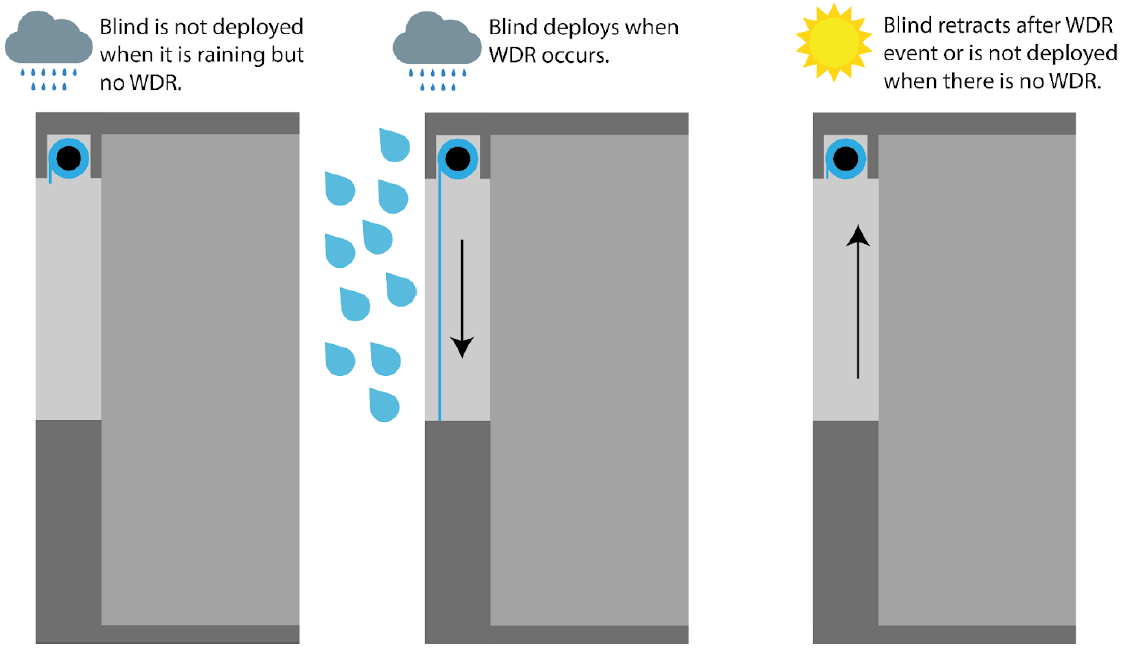Advanced Rain Screen

Project Motivation
Many housing estates in Singapore have an open layout concept to maximize natural ventilation and lighting. However, this also makes them susceptible to wind driven rain which happens when heavy rain occurs concurrently with gusty wind. Our primary research revealed that a majority of residents in housing estates face moderate or serious problems caused by wind driven rain, such as slippery floors and rotting of wooden doors. Nevertheless, current solutions such as manual blinds and permanent overhangs have limited effectiveness in blocking wind driven rain. Moreover, they tend to block out too much natural ventilation and lighting.
Design
To address the problem above, a machine learning-based automated rain screen was developed in this project. It has a data collection and processing package which monitors weather data such as changes in precipitation, wind direction, and speed. Using the data, a control system uses a machine learning algorithm to predict the severity of the wind driven rain and determines whether to deploy a blind to block the wind driven rain. The blind will only be deployed if the level of severity is high enough, and is automatically retracted to restore natural ventilation and lighting when there is no wind driven rain.
Initial tests conducted on a prototype of the automated rain screen have shown that it is able to accurately predict the occurrence of wind driven rain and limit the penetration of the wind driven rain after deploying the blind.

Project Team
Students:
- Jonathan Khoo Teng Yang (Computer Engineering, Class of 2023)
- Ng Wee Teck (Electrical Engineering, Class of 2023)
- Pok Ruey Jye (Mechanical Engineering, Class of 2023)
- Ronald Wee Zhi Yang (Mechanical Engineering, Class of 2023)
Supervisor:

